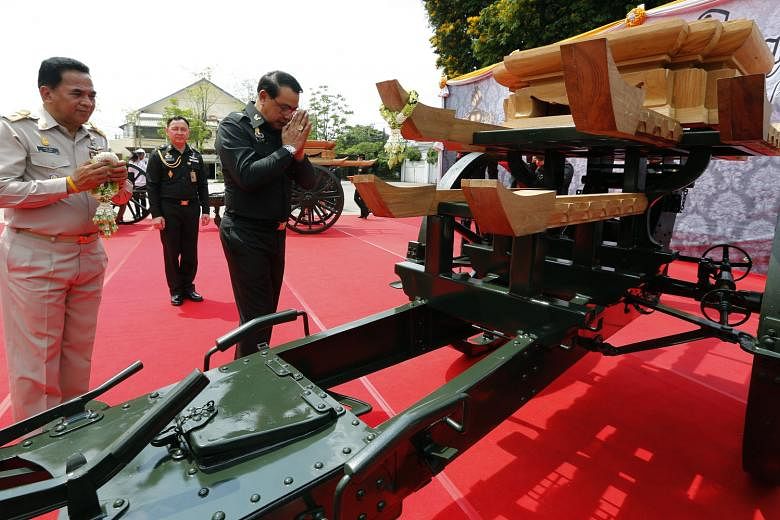BANGKOK • Thailand's new king has been granted control over five state agencies that oversee royal affairs and security, the latest move by an increasingly assertive monarch to consolidate power.
The law detailing the transfers was not made public until it was published late on Monday in the Royal Gazette, meaning lawmakers had voted on the Bill in private.
That secrecy is in line with the trademark opacity of Thailand's monarchy, a powerful institution shielded by strict defamation laws that have landed critics behind bars.
The five agencies transferred to King Maha Vajiralongkorn's control are two major administrative departments - the Royal Household Bureau and the Office of His Majesty's Principal Private Secretary - plus three palace security bodies.
All were previously under government or military control.
"(These) are agencies that handle work related to His Majesty the King and royal family members' business, and they need to follow traditional procedures," the Royal Gazette said. "The work is different than other departments, so it is suitable to set up new agencies under His Majesty's custody."
The latest move to claw back control of the palace bureaucracy caps a long-running effort to "reinvigorate" the monarchy, said Thailand- based academic David Streckfuss. "This quite clearly demarcates a separation between the government and the institution in a way that Thailand has not seen since the end of absolute monarchy," he told Agence France-Presse. "On a symbolic level, the institution of the monarchy is becoming more autonomous and virtually impossible for the public to scrutinise."
King Vajiralongkorn, 64, ascended the throne after the death of his revered father Bhumibol Adulyadej in October last year. It was the country's first royal succession in 70 years, stirring anxiety among power brokers about how a new monarch might restructure complex relations between the palace and the military and government.
While the king's formal powers were limited after absolute monarchy was abolished in 1932, the throne reclaimed much of its prestige and influence under King Bhumibol's charismatic reign. King Vajiralongkorn has yet to attain his father's level of popularity. He has taken a number of assertive moves in recent months to expand his influence.
Earlier this year, he ordered surprise changes to a junta-drafted Constitution that had already been approved in a referendum. The changes gave him control over the naming of a regent and kept open the possibility of a palace intervention, in case of political deadlock.
King Vajiralongkorn was also granted power last year to appoint the kingdom's top monk.
He has sacked a number of powerful palace officials from his father's era, some of whom have been publicly accused of "evil deeds", and were paraded in front of the press with their heads shaved.
AGENCE FRANCE-PRESSE

